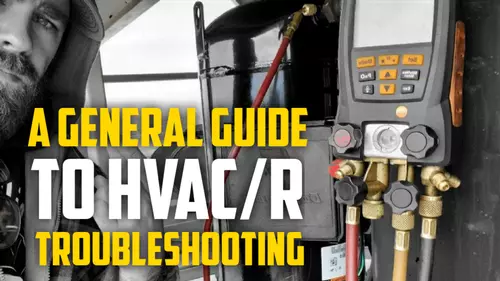
Effective HVAC System Troubleshooting for Home Comfort
Maintaining a comfortable home environment is reliant on a properly functioning HVAC (Heating, Ventilation, and Air Conditioning) system. When issues arise, effective troubleshooting can be the key to restoring comfort and efficiency. Let’s explore some common HVAC problems and strategies for troubleshooting them.
Understanding the Basics: HVAC System Components
Before delving into troubleshooting, it’s helpful to understand the basic components of your HVAC system. This includes the furnace or heat pump for heating, the air conditioner for cooling, air ducts for distribution, and the thermostat for temperature control. Knowing how these elements work together can aid in identifying and resolving issues.
Uneven Heating or Cooling: Balancing Airflow
If certain rooms in your home feel too hot or too cold, uneven airflow may be the culprit. Check for blocked or closed vents and ensure that air registers are not obstructed by furniture. Consider adjusting dampers in the ductwork to balance airflow, promoting consistent temperatures throughout your living space.
Inadequate Heating or Cooling: Check the Air Filter
A common cause of insufficient heating or cooling is a dirty or clogged air filter. Over time, filters accumulate dust and debris, restricting airflow. Regularly check and replace filters, typically every 1-3 months, to ensure optimal system efficiency and prevent strain on the HVAC unit.
Thermostat Issues: Calibration and Battery Check
If your HVAC system seems unresponsive, the thermostat may be the culprit. Check the thermostat settings to ensure they are configured correctly. Additionally, calibrate the thermostat to match the actual room temperature. If it operates on batteries, replace them to guarantee consistent performance.
Odd Noises: Addressing Unusual Sounds
Unusual sounds like rattling, banging, or squealing can indicate various issues within the HVAC system. Rattling may suggest loose components, while banging could indicate a problem with the blower assembly. Squealing often points to issues with the fan motor or belt. If you notice unusual noises, it’s advisable to consult with a professional technician for a thorough inspection.
Lack of Maintenance: Regular System Upkeep
Neglecting regular maintenance is a common factor leading to HVAC problems. Schedule annual professional inspections and maintenance to keep your system in top condition. This includes cleaning components, lubricating moving parts, and addressing any potential issues before they escalate.
Refrigerant Levels: Ensuring Proper Cooling
Inadequate cooling can result from low refrigerant levels. If you notice reduced cooling efficiency, contact a professional technician to inspect and replenish refrigerant levels. Refrigerant leaks can not only impair system performance but also pose environmental risks.
Electrical Issues: Safeguarding System Wiring
Electrical problems, such as faulty wiring or connections, can disrupt HVAC operation. Regularly inspect wiring for signs of damage or wear and address issues promptly. If you are not familiar with electrical systems, it’s recommended to seek professional assistance to ensure safe troubleshooting.
Smart Thermostats: Enhancing Control and Efficiency
Upgrading to a smart thermostat can enhance control and efficiency while providing valuable insights into your HVAC system’s performance. Smart thermostats offer programmable schedules, energy usage data, and remote access via smartphone apps. Consider integrating this technology for a more convenient and energy-efficient home.
Professional Assistance: When to Call in the Experts
While some troubleshooting tasks can be handled by homeowners, certain issues require professional expertise. If you encounter complex problems, refrigerant leaks, or electrical issues, it’s advisable to consult with a licensed HVAC technician. Professional assessments and repairs can prevent further damage and ensure the longevity of your HVAC system.
Optimizing HVAC Performance for Home Comfort
By incorporating these troubleshooting strategies, you can address common HVAC issues and optimize system performance. Regular maintenance, prompt identification of problems, and, when needed, professional assistance contribute to a reliable and efficient HVAC system. Prioritize the comfort of your home by staying proactive in your HVAC system care.



